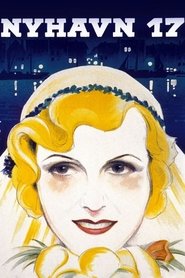detail profile hans w petersen
Peran Yang Di Mainkan Hans W. Petersen
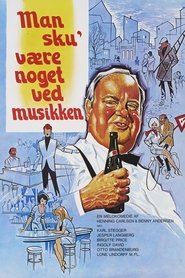 This is a film about the...
This is a film about the...Oh, to Be on the Bandwagon! 1972
This is a film about the stuff dreams are made of, yet, there is nothing elevated in this concept, on the contrary. The characters around the bar Strudsen (the ostrich) are doing what ostriches do, hiding themselves from the threats of life and keeping their dreams to themselves. Scriptwriter Benny Andersen being a poet is rendering a loving portrait of a number of persons, who fail to try to make their dreams come true, possibly not being sufficiently dissatisfied with their life after all. The manager would like a bar of his own but dare not admit to it, the butcher would like to be an opera singer, the window cleaner (sorry, window polisher) is secretly in love with the bar lady, but dare not show it and the pianist willingly listens to all the different dreams being presented to him. This film was the best accomplished movie from Henning Carlsen since his debut with 'Sult'.
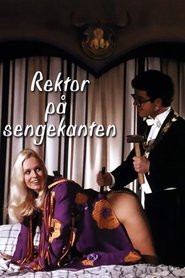 The young headmaster of a boys...
The young headmaster of a boys...Bedside Head 1972
The young headmaster of a boy's boarding school has decided that due to the virility of his young charges, they are a sort of national treasure. He believes that his school should become co-educational as soon as possible. In order to raise funds for the changeover, the boys stay behind during their summer vacation and temporarily convert the school into a love hotel.
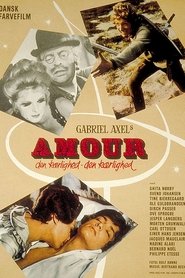 This threepart movie begins with a...
This threepart movie begins with a...Amour 1970
This three-part movie begins with a young woman married to an older, cold-hearted man in the year 1200. Two rivals have a swordfight over the affections of the woman. Part two takes place in 1910 and finds an amorously unfaithful wife taking on her many lovers while her unsuspecting husband lurks nearby. The final part finds a count and countess engaging in extramarital affairs in France during the 1840s.
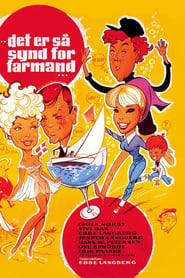 About the young Aarhus businessman Jacob...
About the young Aarhus businessman Jacob...What a Pity About Daddy 1968
About the young Aarhus businessman Jacob Hansen who is going to a congress in Copenhagen. His competitor in the firm sends his secretary over to spy and bring Jacob into disrepute. The secretary has sympathy for Jacob, creating complications when his wife show up.
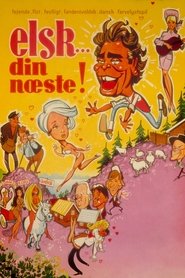 Love Thy Neighbour Danish Elsk din...
Love Thy Neighbour Danish Elsk din...Love Thy Neighbour 1967
Love Thy Neighbour (Danish: Elsk... din næste!, German: Vergiß nicht deine Frau zu küssen ) is a 1967 Danish-German comedy film directed by Egil Kolstø and starring Walter Giller.
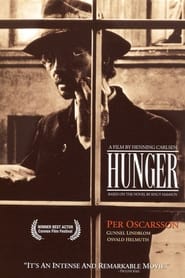 In 1890 Pontus the starving writer wanders...
In 1890 Pontus the starving writer wanders...Hunger 1966
In 1890, Pontus, the starving writer, wanders the streets of Christiania, in search of love and a chance to get his work published. All he meets is defeat and suffering while his sense of reality is withering. One moment he is delighted and the next he curses everybody. All the time he manages to maintain human dignity and pride.
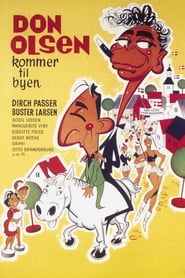 I en lille provinsby residerer bankdirektr...
I en lille provinsby residerer bankdirektr...Don Olsen kommer til byen 1964
I en lille provinsby residerer bankdirektør L.W. Jacobsen. Han er ikke særlig interesseret i sin kone, Elsebeth, men derimod i lærerinde og byrådsmedlem frk.Mortensen. Thorsen, byens manufakturhandler er medlem af samme byrådsgruppe som Jacobsen. Så kommer Don Olsen til byen. Olsen er ikke interesseret i det pænere borgerskab, men derimod i mennesker. Ved et tilfælde mødes Thorsen og Olsen og snart drikker de dus. Thorsen slæber ud på natten mælkemandens hest med hjem i lejligheden. Skandalen er en realitet. Thorsen vil flygte, men med Olsens hjælp bejler han i stedet til byens borgere og frk.Mortensen under mottoet "Gør gode tider bedre"
 Villa Orfeus er en ejendommeligt gammelt...
Villa Orfeus er en ejendommeligt gammelt...Lykkens musikanter 1962
Villa Orfeus er en ejendommeligt gammelt hus, som er blevet et klenodie for kvarterets beboer. Det er et fristed, hvor husets beboer får lov til at være anderledes, at være sig selv i en fremmedgjort verden. Lydia Wiljengren (Ellen Gottschalch), der er enke efter en rig musikhandler, ejer "Villa Orfeus". Hun har efterhånden sat hele sin formue overstyr ved sin forkærlighed for musikalske mennesker. Den eneste betingelse for at bo i huset er, at de enten kan spille eller synge.
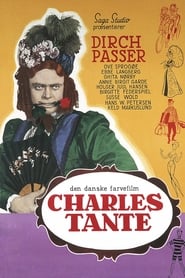 Charles and Peter have passed their...
Charles and Peter have passed their...Charley's Aunt 1959
Charles and Peter have passed their law degree and are looking forward to wooing a few girls in the country. For that, they need a chaperone and persuade their fellow student Ditlev to play Charles's aunt from Brazil. Ditlev has a talent for acting and takes the role very seriously, but when Charles's real aunt turns up, things get complicated.
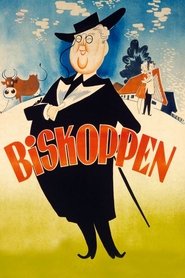 Prsten p Snar Adam Valerius er...
Prsten p Snar Adam Valerius er...Biskoppen 1944
Præsten på Snarø, Adam Valerius, er enkemand på tredje år, og frøkenerne i sognet står i kø for at blive den næste præstefrue. Men da Adams enlige husholderske pludselig bliver gravid, går snakken i det lille samfund, og snart bliver biskoppen tilkaldt. Ved et skæbnens puds bliver den københavnske skuespiller Emil Flor, som er på vej til øen, forvekslet med biskoppen, og han lever sig ind i rollen og løser elegant konflikten. Men så dukker den rigtige biskop op… Hele Danmarks Ib Schønberg var her, der og alle vegne i dansk film i 1940'erne. Men det var i denne komedie af Emanuel Gregers, at han oplevede sin karrieres største komediesucces. I ”Biskoppen”, som blev indspillet midt i besættelsestiden, er han den forfængelige skuespiller Flor, der griber chancen, da den rigtige ”rolle” byder sig. Og som desværre bliver i rollen til efter tæppefald!
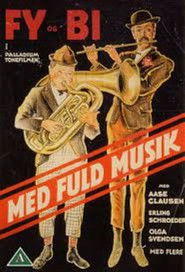 The attic of a city house...
The attic of a city house...With Full Music 1933
The attic of a city house is the home to a colony of artists. Among them is a writer, whose corpus is larger than her output. We also meet a hard-of-hearing poet who can still hear the grass growing. There's a painter, a sculptor and more. All are penniless - hoping that one day they will experience their breakthrough. "The Seventh Heaven", as the corridor is called, also houses two prominent residents, Fyrtårnet and Bivognen. They have set up a small diner and engage lively with the artist from the colony.
 Fyrtrnet and Bivognen are gardeners at...
Fyrtrnet and Bivognen are gardeners at...He, She and Hamlet 1932
Fyrtårnet and Bivognen are gardeners at a residence for young women. Here they are friends with budding actress Eva, but when the three reveal one evening during the performance of an illegal theater performance, they are kicked out. By detours, they get on board a schooner, where Fy and Bi play up to dance and get seasick, while Eva still has her course set against the sloping boards.
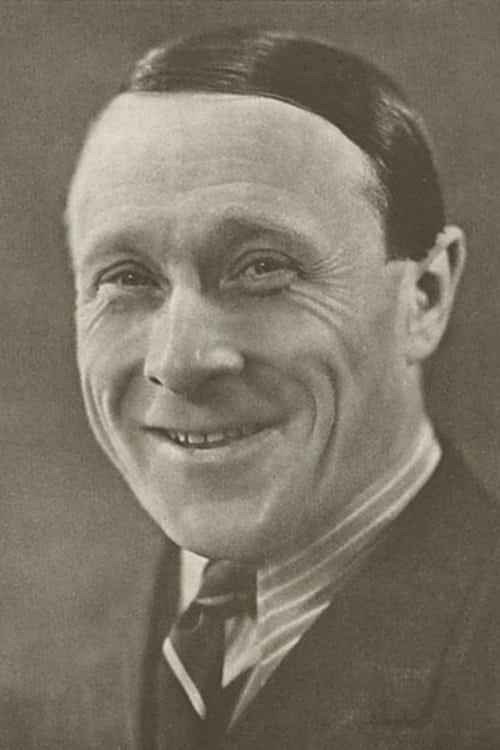
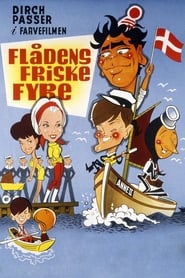 Its Nifty in the Navy is...
Its Nifty in the Navy is...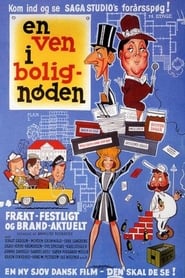

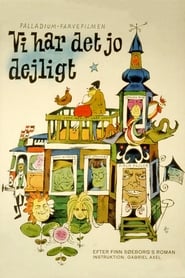
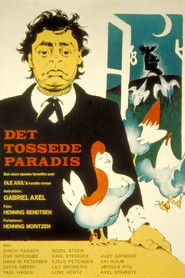 Romantic comedy based on the discovery...
Romantic comedy based on the discovery...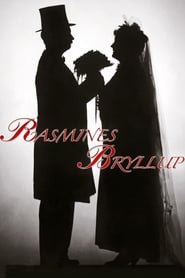
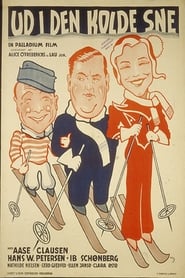 dansk film der bare skal ses
dansk film der bare skal ses